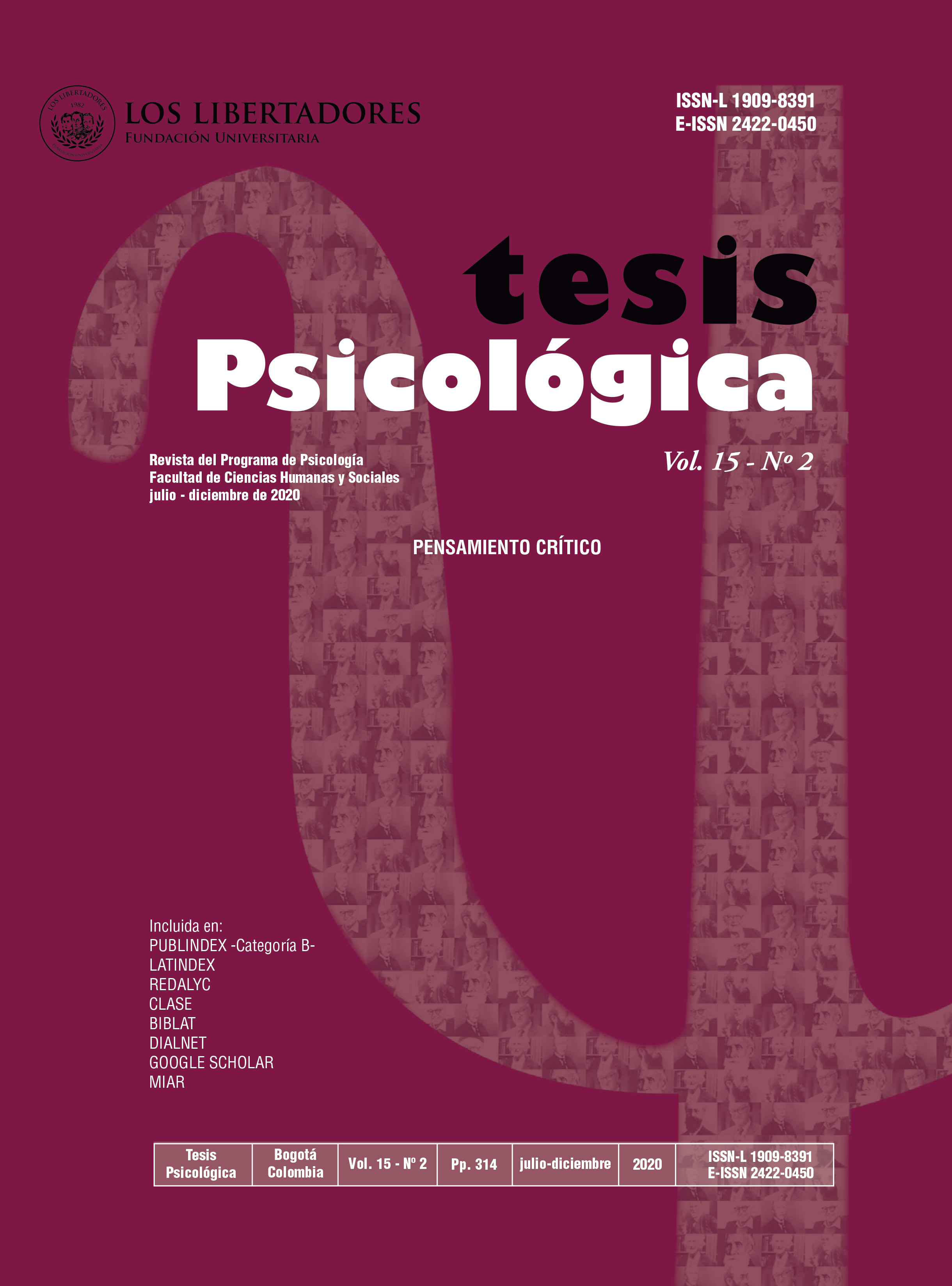Abstract
The spread of the SARS-CoV-2 virus in the world and the declaration of a pandemic by the World Health Organization (WHO, 2020a) required the implementation of preventive quarantines and restrictions on people's freedoms, becoming a factor of risk to people's mental health. Thus, Emergency Psychology acquires importance, as a field of knowledge specialized in the study of human behavior in the face of potentially traumatic events, in which the personal resources and coping capacities available in the immediate environment are overwhelmed. This article describes disaster risk management, outlining the organization of the response to these events. In addition, it provides recommendations for the application of Psychological First Aid and telepsychological intervention in the context of a pandemic, highlighting social support and the promotion of resilient communities, as effective coping strategies in emergencies and disasters.

This work is licensed under a Licencia Creative Commons Atribución-NoComercial-


